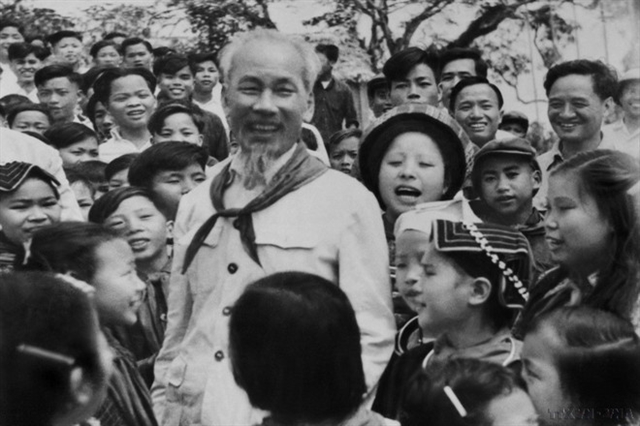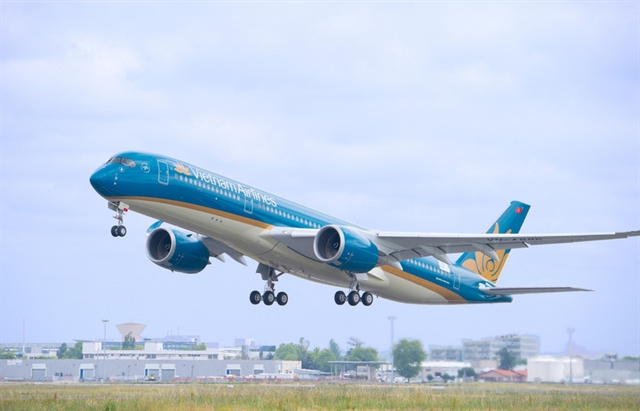 Politics & Law
Politics & Law


|
| Late President Hồ Chí Minh visits a school for ethnic children in mountainous areas in Thái Nguyên Province on March 13, 1960. VNA/VNS File Photo |
MEXICO CITY – Claudio De Negri, Secretary of the Chilean Communist Party’s Central Committee and head of its Commission for External Relations, still vividly remembers the melody of the "Ballad of Ho Chi Minh" that he and thousands of Chileans sang in the main square of Santiago de Chile during a march in support of Việt Nam in the late 1960s.
“Ho, Ho, Ho Chi Minh: We will fight to the end!” is the chorus of the song’s Spanish version that Claudio De Negri, then a student, sang with his hand raised amidst the crowd, despite the fact that, like most Chileans at the time, he had never met President Hồ Chí Minh or had any direct contact with the people of faraway Việt Nam.
Recalling his youth while speaking to the Vietnam News Agency, De Negri, who once served as the Ambassador of Chile to Việt Nam, said that during the 1960s, he and dozens of Chilean youth who followed progressive ideologies secretly designed posters and painted murals of Hồ Chí Minh and Việt Nam, which were then displayed at public locations across the Chilean capital, Santiago. They did this despite the administration’s ban, knowing it could lead to arrest or imprisonment.
Reflecting on President Hồ Chí Minh in the run-up to his 135th birthday (May 19, 1890 –2025), De Negri affirmed that his admiration, as well as that of the Chilean people at the time, for the President and the Vietnamese people came naturally. It stemmed from shared ideals of fighting for freedom and peace.
After Cuba, Chile was the second Latin American country to establish diplomatic relations with the Socialist Republic of Việt Nam, yet this relationship was not solely based on state-level interactions. It began as a deeply humane story, driven by the compassion of pioneers.
In 1969, when Salvador Allende was President of the Chilean Senate, he traveled halfway around the world to Hà Nội to meet President Hồ Chí Minh. Allende was the last foreign leader on a state visit received by Hồ Chí Minh before his death.
During that historic meeting, Allende told the Vietnamese leader: "I will become the President of Chile, and I will honour my people by establishing official diplomatic relations with Vietnam."
This promise was not only a beautiful moment shared between two revolutionaries, but also a testament to the power of the ideals of peace, independence, and justice. In 1970, Allende became President of Chile. Just a year later, while Việt Nam was still in the midst of war, Chile opened its embassy in Hà Nội.
Meanwhile, from Quito - the capital of Ecuador, Juan Meriguet Martínez, a member of the leadership of the "Somos Patria" party recounted that in the 1960s and 70s, people of all ages in Ecuador closely followed the news from Việt Nam.
The name of President Hồ Chí Minh, along with his writings and ideology, became central to revolutionary movements across Latin America, helping spark global solidarity with Việt Nam.
Meriguet’s own home - like many others in Ecuador - preserves memorabilia such as photographs and books about President Hồ Chí Minh, General Võ Nguyên Giáp, and other Vietnamese intellectuals, honouring the values Việt Nam represents.
In Peru, Hidebrando Cahuanca Segovia, a member of the Central Committee of the Communist Party of Peru, expressed deep admiration for Hồ Chí Minh’s political and military leadership. He described Hồ Chí Minh as the figure who led the Vietnamese people to victories and whose thought continues to guide the country’s development. Hồ Chí Minh’s famous view- “Nothing is more precious than independence and freedom” - has become a rallying cry for peace-loving people across Latin America.
Meanwhile, in Mexico, Judge Ricardo Alfredo Sodi Cuellar, President of the State of Mexico’s Court of Justice, noted that the country not only has one of the highest numbers of Hồ Chí Minh statues in the world but also a major lecture hall named after him at the National Autonomous University of Mexico (UNAM).
According to Judge Sodi Cuellar, this reflects both the admiration of the Mexican people and the deep respect Hồ Chí Minh’s ideas command within academic and intellectual circles. VNA/VNS




